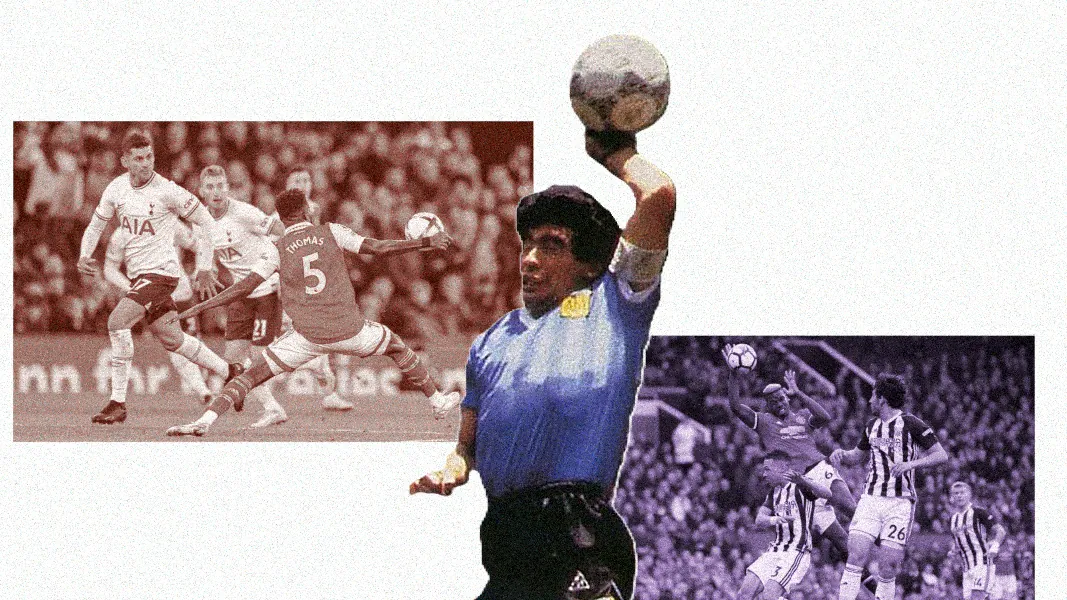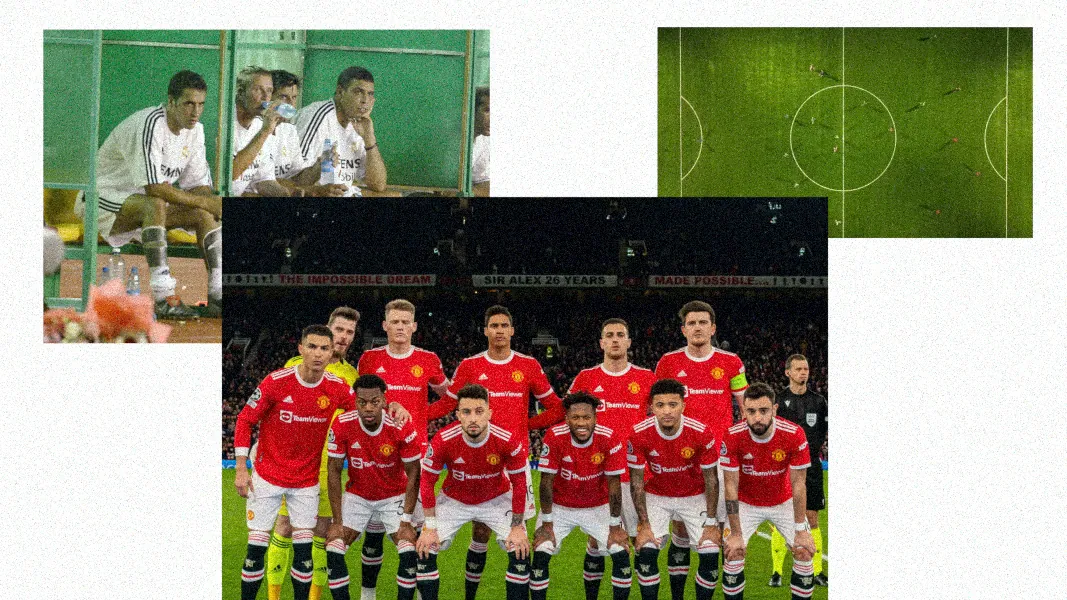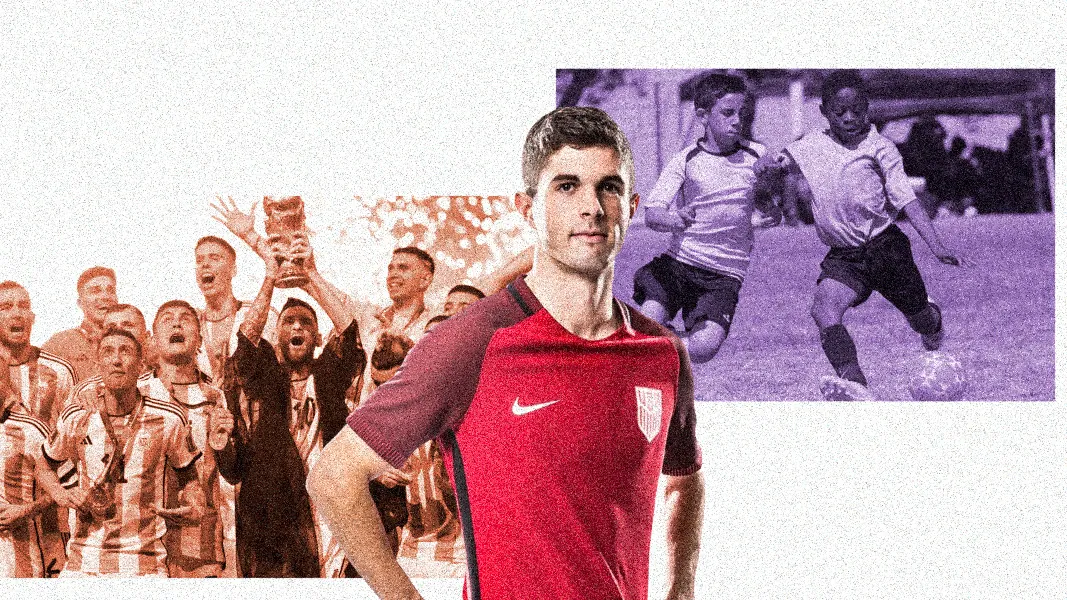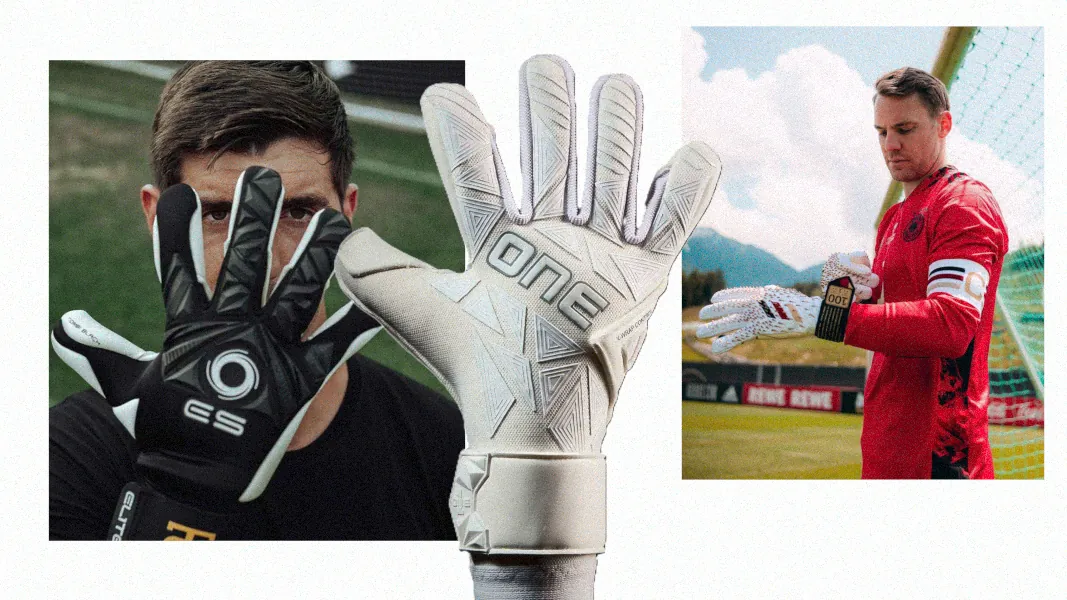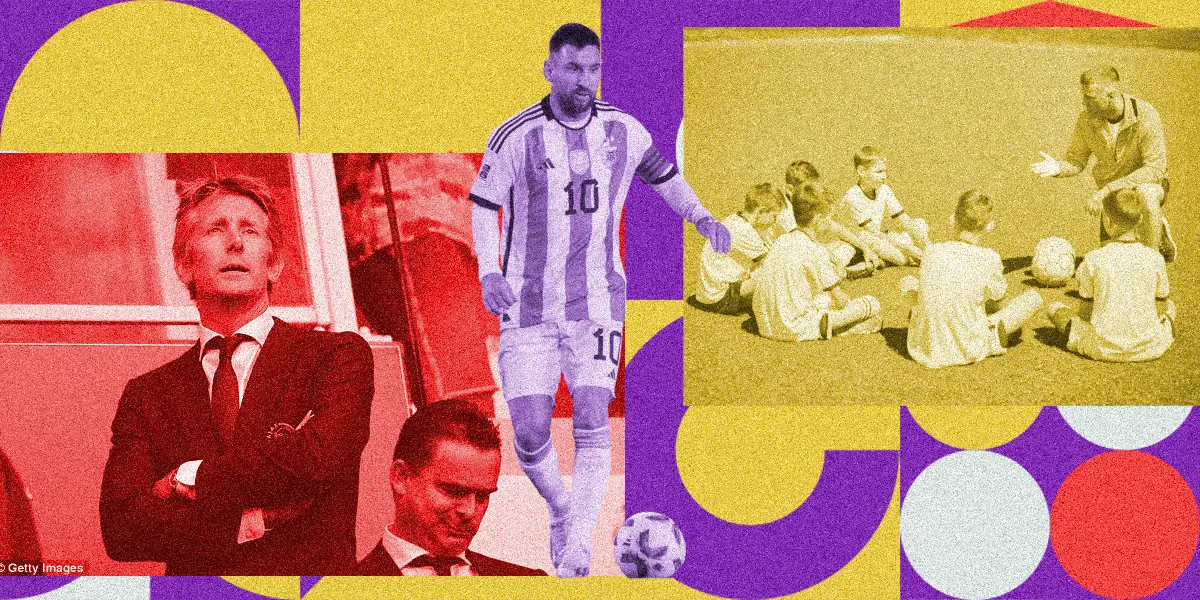In this post, I’ll be answering the question when do soccer players retire?
Soccer players eventually step away from the game. But when exactly do soccer players retire?
On average, soccer players retire at the age of 35. But the answer’s not as simple as that.
That’s why I’ll talk about all the nuances involved in this topic. In this post, you’ll learn about:
- The statistics of the age of retirement
- The reasons why soccer players retire at a certain age
- The retirement age of famous soccer players
- Post-retirement career options for soccer players
- And much more!
So let’s dive in!
The Average Retirement Age in Soccer
The Global Average Age of Retirement
Several studies suggest a global average retirement age of around 35 years old.
They also suggest that the average career span of a soccer player is between 8 and 11 years.
Soccer players reach their peaks in their mid to late 20s and begin to decline around their mid-30s.
But it’s not as simple as that, of course. Every player is different. Some players play at their peak till their late 30s.
Also, different studies suggest different ages and many factors influence the numbers.
Factors like different leagues and regions play an important role in determining the average age of retirement.
But don’t worry. In this post, I’ll try to cover as many nuances as possible. So we’ll have a good understanding of the whole topic.
Average Age of Players in Different Leagues
We can better understand when soccer players retire by looking at their average playing age.
Here’s a list of the average age of soccer players in different leagues (in descending order):
| League | Average Age |
|---|---|
| Super League Greece | 28.6 |
| Turkish Süper Lig | 28.4 |
| La Liga (Spain) | 27.5 |
| Russian Premier League | 27 |
| Bundesliga (Germany) | 27 |
| Scottish Premier League | 27 |
| Serie A (Italy) | 26.9 |
| English Premier League | 26.8 |
| Primeira Liga (Portugal) | 26.5 |
| Ligue 1 (France) | 26.3 |
| Belgian Pro League | 25.4 |
| Bundesliga (Austria) | 25.3 |
We can see the difference in players’ ages across different leagues in Europe.
The Greek Super League has the highest average player age at 28.6 years. This could mean that players from other leagues go to Greece when they’re nearing their retirement.
Or it could also mean that players retire later in Greece than in other countries.
In the absence of concrete data, this kind of data can help us get a better picture.
Average Retirement Age of Players in Different Leagues
With the prior information in mind, let’s now look at the average age at which players retire in different leagues.
As I mentioned earlier there isn’t a single, definitive answer to this. But let’s look at what I could gather.
| League/Region | Average Retirement Age |
|---|---|
| Top European Leagues (Premier League, La Liga, Bundesliga) | Late 30s (36-38) |
| Other European Leagues | Mid-30s (33-35) |
| South American Leagues (Brazil, Argentina) | Mid-30s (32-34) |
| North American Leagues (MLS) | Mid-30s (33-35) |
| Asian Leagues (J-League, K-League) | Late 30s (36-38) |
| African Leagues | Early-to-Mid 30s (30-34) |
As you can see, the average age of retirement is the highest in the Top European Leagues.
Asian leagues also have a similar retirement age. But take this data with a grain of salt. Asia is a huge continent. So the variation in retirement ages is also huge.
For example, Kazuyoshi Miura in the Japanese League is the oldest professional soccer player at 56 years old.
On the other hand, in less developed leagues like the Indian Super League, players tend to retire earlier.
Average Retirement of Different Positions
You’d be surprised to know but players retire at different ages based on their positions.
Goalkeepers tend to retire at a higher age because it’s a less demanding position.
But, a striker retires earlier because the position requires physicality and pace.
Let’s look at each position in more detail.
| Position | Avg. Retirement Age |
|---|---|
| Goalkeeper | 40 |
| Central Defender | 38 |
| Full-back/Wing-back | 37 |
| Central Midfielder | 37 |
| Attacking Midfielder/Winger | 34 |
| Striker | 34 |
Goalkeeper
On average, goalkeepers retire from soccer at the age of 40.
The retirement age of goalkeepers is so high because they need less explosive speed in their play. A goalkeeper relies more on tactical awareness and experience.
That’s not to say that goalkeepers don’t have any technical skills. Or that it’s not a physically demanding role.
But the physical demands are not as high as other positions.
Central Defender
On average, central defenders retire from soccer at the age of 38.
Like goalkeepers, defenders rely on positioning, leadership, and experience.
Their role requires more physicality, but a decline in speed and agility does not cause great harm. Defenders can cope through a good tactical understanding and positioning.
Full-back / Wing-Back
On average, fullbacks and wingbacks retire at the age of 37.
A fullback requires more physical endurance and attacking ability compared to central defenders.
They can adapt and move to different positions on the field. But a decline in speed and stamina impacts the effectiveness of playing in a fullback role.
Central Midfielder
On average, central midfielders retire at the age of 37.
For a central midfielder, versatility and adaptability are key. There’s also a lot of variation in the retirement age according to their roles.
For example, box-to-box midfielders might retire earlier due to physical demands.
Meanwhile, deep-lying playmakers can last longer. This is because their main role is to distribute the ball from the back without running a lot.
Attacking Midfielder/Winger
Attacking Midfielders and wingers usually retire from soccer at the age of 34.
Attacking midfielders and wingers rely on their pace, agility, and dribbling skills. So a decline in these attributes can significantly impact their performance.
Striker
On average, strikers retire from soccer at the age of 34.
A striker’s role is a demanding one. It requires explosive speed, finishing ability, and clinical decision-making.
So a decline in these areas can be challenging to overcome, especially for pacy strikers.
Factors Influencing When Soccer Players Retire
Physical Demands
Soccer players’ retirements hinge on various factors. Their physical well-being stands tall among them.
Age, for instance, plays a significant role. As players age, their bodies undergo changes that can affect their performance and decision-making.
Injuries, too, cast a significant shadow. A player dealing with recurring injuries might have to retire early.
Take the example of Ronaldo Nazário. Due to persistent knee injuries, he decided to retire at 34 instead of continuing until his late 30s.

The path to retirement isn’t only determined by the years on the calendar, but rather the wear and tear endured on the pitch.
Performance and Competitiveness
The sway of soccer player retirements isn’t just drawn by age and injuries. Performance and competitiveness hold their sway too.
Skill level, a pivotal component, affects retirement timing. As a player’s skills decline, staying at peak performance becomes challenging.
Team success plays a role as well. A player may retire at the pinnacle of their career. They might want to conclude their journey on a high note.
Financial and Contractual Aspects
The contracts and financial situation also play an important role in retirement.
Contracts, with their varying lengths, mold retirement choices. A player with a nearing contract end might reflect on their future – renew or retire?
Financial security, a driving force, also enters the scene. Consider a player with large earnings. They might retire earlier as they’re content with their financial stability.
Different Stages at Which Soccer Players Retire
Early Career
Soccer player retirements follow distinct stages. The early career transition is a pivotal juncture.
Young players sometimes face unforeseen paths due to injuries or performance hurdles.
Navigating these challenges, some opt for an early retirement.
Thomas Tuchel, the now famous UCL-winning manager, retired at the age of 24! He had to retire due to his knee cartilage injuries.

For others, the transition becomes a chance for reinvention.
A young player might pivot to sports journalism to merge their passion for soccer with communication skills.
Mid-Career
Some soccer players retire at what some would consider, the middle of their career. Players at this juncture pause to ponder their paths.
When do they typically consider retirement? It’s often when they feel the tugs of time and performance.
They weigh the pros and cons, mulling over personal aspirations against the grind of the game.
For example, a player might check if extending their career aligns with their desire to spend more time with family.

Guidance often comes into play.
Players seek advice from mentors or experts. The mentors aid the players in navigating this pivotal crossroads.
Late Career
As soccer players tread further in their careers, the late stage becomes a poignant chapter, culminating in a final farewell.
What drives players to extend their careers at this juncture?
Often, it’s a combination of legacy-building and a desire to contribute more to their teams.
The inevitable transition out of the game follows.
Players prepare for this emotional shift. Some choose to become mentors or coaches, others go into the media.

Transitioning, however, is no simple feat.
The switch from the pitch to new roles requires careful planning and emotional adjustment.
In the twilight years of their careers, soccer players embrace the bittersweet reality. The reality of parting ways with the sport that has defined their lives.
Exceptions and Outliers
There are always exceptions and outliers in a dataset. And the age of retirement in soccer is no different.
Players who played beyond the average retirement years
Some players continue playing at the top level despite their age.
In soccer, there’s no definite age of retirement. And these players knew it.
Let’s look at the players who defied their age to continue playing soccer.
Kazuyoshi Miura
At 56 years old, Kazuyoshi Miura is still playing soccer. And that too as a striker.
He currently plays for Oliveirense in the Liga Portugal 2. Miura also holds the record for the oldest professional soccer player in the world.
Teddy Sheringham
Teddy Sheringham played soccer until the age of 42. The English striker had a successful career and played until 2008.
Sheringham’s longevity can be attributed to his intelligent positioning and aerial prowess. Despite being a striker, he was able to use his soccer IQ to prolong his career.
Ryan Giggs
Ryan Giggs retired from soccer at the age of 40. He retired in 2014 after a decorated career with Manchester United. He won 34 trophies in his 24-year career.
His adaptability and understanding of the game allowed him to play soccer for such a long time.
Roger Milla
Do you know about Roger Milla’s famous celebration after scoring a goal at the 1994 World Cup? Roger Milla was 42 years old when he scored that.
Milla finally retired from professional soccer in 1996 at the age of 46.
Players who retired at a very young age
While some players play soccer into their old age, others retire at a very young age.
These are some of the soccer players who retired earlier than expected.
Just Fontaine
Just Fontaine was a highly talented French striker. He had to retire from professional soccer at the age of 28.
A recurring leg injury and chronic back pain caused him to retire at such a young age.
An example of how good he was. Just Fontaine still holds the record for most goals scored in a single World Cup (13 in 1958).
Eric Cantona
Another French striker who retired early. But this time on his own accord.
Eric Cantona shocked soccer fans by retiring at his peak at the age of 30. He cited a preference for leaving the game on his own terms and pursuing other interests.
Marco van Basten
Considered one of the greatest soccer players of all time, Marco van Basten retired at the age of 28.
The Dutch legend struggled with recurring ankle injuries, which ultimately led to his early retirement.
Life of Soccer Players After Retirement
Life after retirement can be hard. And it’s no different for soccer players.
As a soccer player, you need to plan and choose the best career post-retirement.
Difficulties Players Face After Retirement
The life of an athlete can seem glamorous during their playing careers. But they face significant challenges to transition into the retired life.
Here are some challenges that soccer players face after retirement.
Shift in Identity
A soccer career is highly rewarding. It’s so structured that you have your daily schedule mapped out for years.
Active soccer players (and other athletes) also gain the image of heroes. Fans love and adore them.
So transitioning into civilian life can be hard. Players lose their daily routine. They also lose the team environment and public recognition they were used to.
Financial Uncertainty
If there’s one thing soccer players aren’t good at. It’s financial planning.
While some players are smart with their money and achieve financial security, most of the players are not prepared for the future.
The career of a soccer player is also relatively short. Compare it with careers in other fields like accounting, marketing, or research, and you’ll see a huge difference in the career span.
That’s not to say that soccer players don’t earn as much. Due to high salaries, soccer players earn almost the same amount as other fields in a much shorter period.
But with the nature of the game, players rarely get time to think about financial planning. Managing finances, finding new income streams, and adjusting to a potentially lower standard of living can be demanding.
Physical and Mental Health
The high demands of an athletic career can take its toll. And it’s most clear in the mental and physical health of retired players.
Years of intense training and playing can lead to chronic pain and injuries. Players also suffer from mental health issues like depression and anxiety.
That’s why transitioning to a less active lifestyle and navigating potential mental health challenges requires proactive care and support.
Loss of Purpose and Motivation
What do you do after you’ve achieved your life’s goal? You wanted to be a professional soccer player and you’ve lived your dream.
Finding new purpose and motivation after years of focusing on soccer can be difficult.
Players struggle with boredom, lack of structure, and missing the competitive environment.
Transition Into a Different Field
It’s very rare to see soccer players have formal education. There are some exceptions of course.
But most players lack formal education or experience outside of soccer.
So what do you do when you only know how to play soccer?
That’s another reason why transitioning into a retirement life can be hard. It requires upskilling, reskilling, and navigating unfamiliar professional landscapes.
Rebuilding Family and Social Relationships
As I said before, a career in soccer takes its toll.
The demands of a professional athlete can also impact family life and social relationships. Soccer players stay away from their loved ones for weeks if not months.
So after retiring, soccer players need to rebuild connections. They also need to adjust to changing family dynamics.
Now that we’ve looked at the challenges, let’s take a look at the career options soccer players have after retirement.
Career Options for Soccer Players After Retirement
The world doesn’t end after hanging up your boots!
While the transition can be challenging, many exciting career options exist for retired soccer players.
Here are some of them.
1. Soccer Coaching
The most natural progression of a soccer player is to become a coach.
Players can pass on their expertise and wisdom to the new generation.
There are several options in coaching to choose from.
- Youth coach
- Assistant Manager
- Manager
- National team coach
- Individual skills coach (Goalkeeping coach, striking coach, etc.)
For example, Carlo Ancelotti, Pep Guardiola, and Zinedine Zidane transitioned successfully into coaching.
2. Punditry/Media
Another common option for soccer players is to work in the media.
As pundits, former players can share their insights and analysis with the fans. They also get a chance to show their personality in front of the camera.
For example, former players like Gary Neville, Thierry Henry, and Roy Keane are successful pundits.
3. Agent/Consultant
What’s a better way to use all your expertise than to consult in the soccer industry?
Former players can choose to represent other players as their agents.
They can also work as consultants for clubs or academies to help the organizations achieve their goals.
For example, Edwin van Der Sar became the president of Ajax after his retirement.
4. Scouting
Scouting is not the optimal role for everyone. That is because scouts need to travel a lot around the world to identify talents.
Nonetheless, it’s also a good option for retired soccer players.
As scouts, former players get to use their passion for the game to identify and nurture young talent.
5. Business Ventures
If players don’t want to work for someone else, they can work for themselves.
Working on your own business venture is the most complex career option after retirement. Players need to start planning for this years before they retire.
Some famous examples are David Beckham, Gerard Pique, and Mathieu Flamini. They started investing and working on their business ventures before retiring.
Other Career Options for Retired Players
Players don’t necessarily have to go into soccer-related careers after retirement. They can choose to go into other fields as well.
Here are some options.
- Fitness Industry
- Motivational Speaking
- Community/Charity Work
- Academia
- Career Counseling
Retirement Age of Famous Soccer Players
Here are the retirement ages of some of the most famous soccer players.
| Player Name | Nationality | Position | Retired at |
|---|---|---|---|
| Gianluigi Buffon | Italy | Goalkeeper | 45 |
| Lev Yashin | Soviet Union | Goalkeeper | 41 |
| Javier Zanetti | Argentina | Defender | 41 |
| Paolo Maldini | Italy | Defender | 41 |
| Rivaldo | Brazil | Forward | 41 |
| Edwin van Der Sar | Netherlands | Goalkeeper | 40 |
| Lothar Matthäus | Germany | Germany | 40 |
| Alessandro Del Piero | Italy | Forward | 40 |
| Xavi Hernandez | Spain | Midfielder | 39 |
| David Beckham | England | Midfielder | 38 |
| Franz Beckenbauer | Germany | Defender | 38 |
| Diego Maradona | Argentina | Forward | 37 |
| Johan Cruyff | Netherlands | Attacking Midfielder | 37 |
| Thierry Henry | France | Forward | 37 |
| Ronaldinho | Brazil | Attacking Midfielder | 37 |
| Pelé | Brazil | Forward | 36 |
| Wayne Rooney | England | Forward | 35 |
| Kaka | Brazil | Attacking Midfielder | 35 |
| Zinedine Zidane | France | Midfielder | 34 |
| Ronaldo Nazario | Brazil | Forward | 34 |
| Michel Platini | France | Forward | 32 |
Final Thoughts On The Age At Which Soccer Players Retire
So, when do soccer players retire? There’s no one-size-fits-all answer.
It’s a dynamic interplay of personal aspirations, external circumstances, and the evolving nature of the beautiful game itself.
As soccer players go through these stages, they make choices that echo beyond the pitch.
The retirement journey is as intricate as the game itself. It’s a symphony of passion, pragmatism, and pursuit of new horizons.
Thank You For Reading
So I hope you enjoyed learning about the age at which soccer players retire. If you did, then do consider sharing it with fellow soccer enthusiasts.
Your support and sharing of this content can help us reach a wider audience. It can also provide valuable information to more people who share our passion for the beautiful game.
I’d also like to hear what you have to say…
Is your favorite soccer player still playing or are they retired?
What is the best age to retire in soccer according to you?
Let me know your thoughts by leaving a comment below right now.
Thank you for supporting Soccer Mavericks!
If you liked this article, you will love reading:


